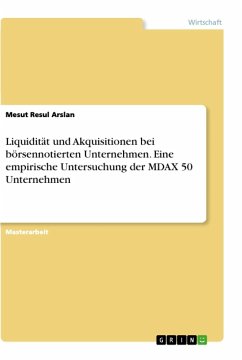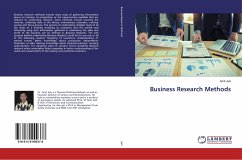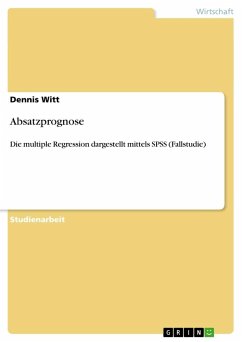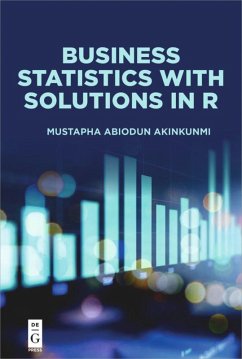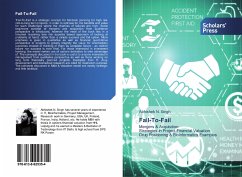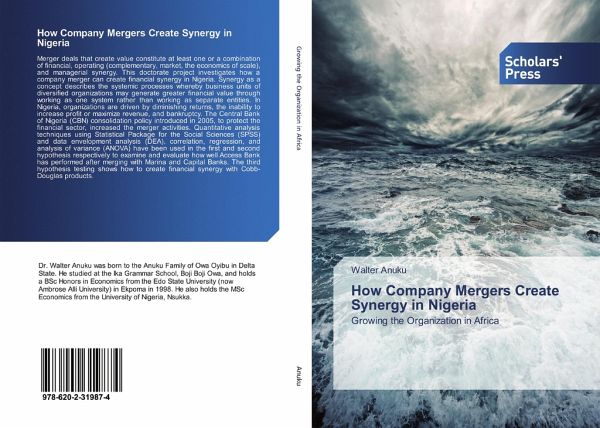
How Company Mergers Create Synergy in Nigeria
Growing the Organization in Africa
Versandkostenfrei!
Versandfertig in 6-10 Tagen
53,99 €
inkl. MwSt.

PAYBACK Punkte
27 °P sammeln!
Merger deals that create value constitute at least one or a combination of financial, operating (complementary, market, the economics of scale), and managerial synergy. This doctorate project investigates how a company merger can create financial synergy in Nigeria. Synergy as a concept describes the systemic processes whereby business units of diversified organizations may generate greater financial value through working as one system rather than working as separate entities. In Nigeria, organizations are driven by diminishing returns, the inability to increase profit or maximize revenue, and...
Merger deals that create value constitute at least one or a combination of financial, operating (complementary, market, the economics of scale), and managerial synergy. This doctorate project investigates how a company merger can create financial synergy in Nigeria. Synergy as a concept describes the systemic processes whereby business units of diversified organizations may generate greater financial value through working as one system rather than working as separate entities. In Nigeria, organizations are driven by diminishing returns, the inability to increase profit or maximize revenue, and bankruptcy. The Central Bank of Nigeria (CBN) consolidation policy introduced in 2005, to protect the financial sector, increased the merger activities. Quantitative analysis techniques using Statistical Package for the Social Sciences (SPSS) and data envelopment analysis (DEA), correlation, regression, and analysis of variance (ANOVA) have been used in the first and second hypothesis respectively to examine and evaluate how well Access Bank has performed after merging with Marina and Capital Banks. The third hypothesis testing shows how to create financial synergy with Cobb-Douglas products.








